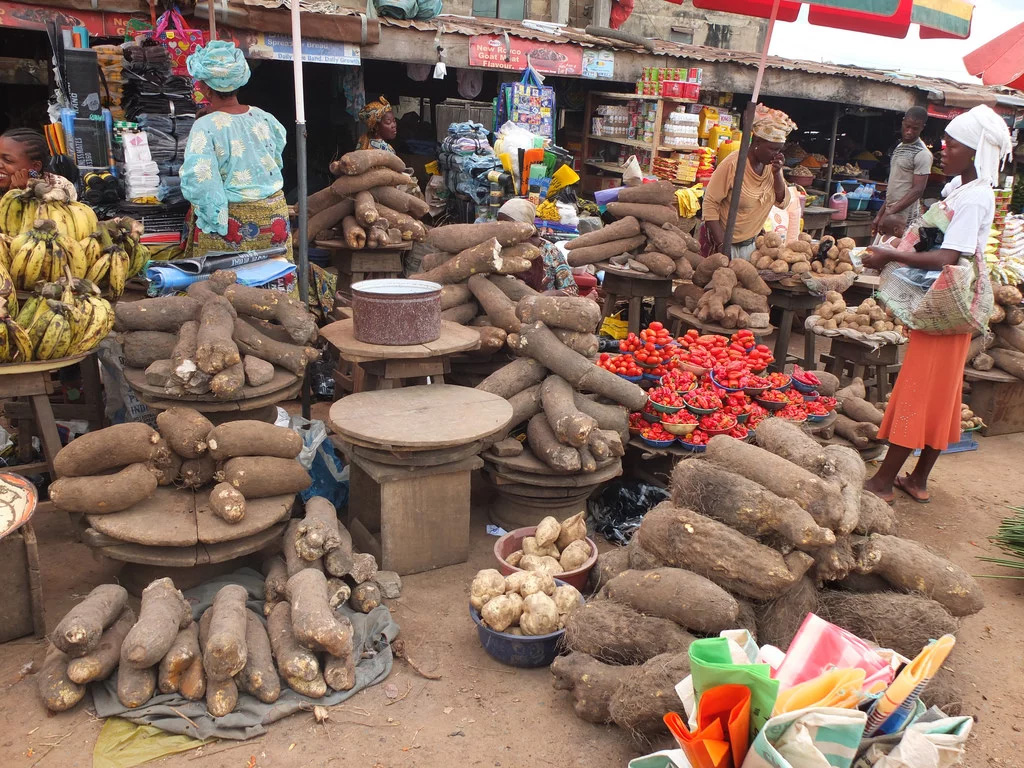Business
Agric budgets hit N874.83bn, food imports gulp N7.81tn

The Federal Government budgeted about N874.83bn for the Federal Ministry of Agriculture and Rural Development from 2016 to 2021, whereas the imports of agricultural goods into Nigeria during same period were estimated at N7.81tn, checks by our correspondent showed.
It was gathered that the highest imports of agricultural goods into the country during the period under review were recorded in 2021, as products valued at N2.74tn were imported last year.
On the other hand, the least imports within the same duration were reported in 2016. Nigeria’s agricultural goods imports in 2016 were estimated at N656.4bn.
Operators in the agric business space frowned at the development, outlining a plethora of reasons for the massive imports when compared to what was budgeted and often not fully released to the agric ministry during the review period.
Data from the 2016 to 2021 budgets for the ministry indicated that the government budgeted about N874.83bn for the ministry to drive the country’s agricultural sector during the six-year period.
Whereas data analysed by our correspondent from 24 different quarterly reports obtained from the National Bureau of Statistics on ‘Foreign Trade in Goods Statistics’ with respect to the total imports of agricultural goods into Nigeria showed that N7.81tn was spent on food imports.
READ ALSO:
- US announces $1bn in new military aid for Ukraine in largest delivery of arms yet
- Obi won’t win half of any Nasarawa council – Adeyanju
- Kwara teenager disguises as mad man, rapes 10-year-old
An analysis of the budgets for the agriculture ministry showed that in 2016, the ministry got a budget of N46.17bn for capital projects and N29.63bn for recurrent expenditures, making it a total of N75.8bn for that year.
Its budget for capital projects in 2017 was N103.79bn, while both the combined capital (N118.98bn) and recurrent (N53.81bn) budgets for the ministry in 2018 was N172.79bn.
In 2019, the FMARD’s capital and recurrent budgets were N107.21bn and N57.68bn respectively, translating into a total of N164.89bn.
Its 2020 capital budget was N124.4bn with a recurrent budget of N58.69bn, making it a total of N183.1bn.
The ministry’s 2021 capital budget was N110.24bn. It got N69.22bn for recurrent expenses, bringing its total budget for last year to N174.46bn.
Meanwhile data from the Foreign Trade in Goods Statistics of the NBS on total imports of agricultural goods imported into the country last year was N2.74tn.
Figures from the bureau’s quarterly reports showed that in the fourth, third, second and first quarters of 2021, the agricultural goods imports were N667.16bn, N789.1bn, N652.08bn and N630.2bn respectively.
Food or agricultural imports in 2020 gulped N1.713tn, as the country spent N532.4bn, N503.4bn, N415.6bn and N261.4bn importing agricultural goods in Q4, Q3, Q2 and Q1 respectively in 2022.
A total of N959.48bn was spent on agro-commodities’ imports in 2019, with N233.3bn spent in Q4, N239.9bn in Q3, N249.95bn in Q2 and N236.33bn in Q1.
For 2018, agricultural goods imports consumed N851.7bn. The amounts spent on imports in the fourth, third, second and first quarters were N218.8bn, N224.3bn, N224.5bn and N184.4bn respectively.
The NBS put the total amount of agricultural goods imported into Nigeria in 2017 at N886.7bn. It stated this in its fourth quarter report for 2017.
The Q4 2017 report also revealed the total amount of agricultural goods that were imported into the country in the preceding year of 2016 was put at N656.4bn.
It was observed in the various quarterly reports that the major agricultural goods imported into Nigeria included Durum wheat, crude palm oil, palm olein, among others.
Operators in the sector decried the huge imports of agricultural products into Nigeria, attributing this to the myriad of challenges in the sector.
The National President, All Farmers Association of Nigeria, Kabir Ibrahim, told our correspondent that the drop in exports and huge imports were due to reduced productivity in Nigeria.
He said the lack of agro-inputs and insecurity were also major constraints confronting industry and its operators in Nigeria.
He said, “Our productivity has gone down now, which means that the quantity available to export has gone down and as such we have to rely on imports to meet local demand. This is worrisome to not just farmers but to every genuine stakeholder in the agricultural industry in this country.”
Punch
Business
PH refinery to blend 1.4-million litre petrol daily – NNPC

PH refinery to blend 1.4-million litre petrol daily – NNPC
Rehabilitated old Port Harcourt refinery is currently operating at 70 per cent of its installed capacity, the Nigerian National Petroleum Company Limited has said.
The Port Harcourt Refining Company (PHRC) operates two refineries: the old refinery with a capacity of 60,000 barrels per stream day (bpsd) and a new refinery with an installed capacity of 150,000 bpsd.
The NNPCL in a statement on Tuesday, said it planned to increase the operation to 90 per cent of the refinery’s capacity.
“The Board and Management of the Nigerian National Petroleum Company Limited (NNPC Ltd) express heartfelt appreciation to Nigerians for their support and excitement over the safe and successful restart of the 60,000 barrels-per-day Old Port Harcourt Refinery,” the statement reads.
“This achievement marks a significant step forward after years of operational challenges and underperformance.
“We are, however, aware of unfounded claims by certain individuals suggesting that the refinery is not producing products. For clarity, the Old Port Harcourt Refinery is currently operating at 70% of its installed capacity, with plans to ramp up to 90%.”
According to NNPC, the refinery has commenced production of daily outputs of straight-run petrol (naphtha), which is blended into 1.4 million litres of petrol.
The national oil company said the refinery has also started producing 900,000 litres of kerosene per day and 1.5 million litres per day of diesel.
The NNPC said 2.1 million litres daily volume of low-pour fuel oil (LPFO) would also be produced at the refinery, adding that additional volumes of liquefied petroleum gas (LPG) will be refined at the plant.
“It is worth noting that the refinery incorporates crack C5, a blending component from our sister company, Indorama Petrochemicals (formerly Eleme Petrochemicals), to produce gasoline that meets required specifications,” NNPC said.
“Blending is a standard practice in refineries globally, as no single unit can produce gasoline that fully complies with any country’s standards without such processes.”
Additionally, the NNPC said it has made substantial progress on the new Port Harcourt refinery, “which will begin operations soon without prior announcements”.
“We urge Nigerians to focus on the remarkable achievements being realized under the able and progressive leadership of President Bola Tinubu and to support efforts aimed at delivering more dividends to the nation,” the energy firm said.
According to the statement, malicious attacks on “clear progress” only undermine the “significant strides made by NNPC Ltd and the country”.
Business
PH refinery: 200 trucks will load petroleum products daily, says Presidency

PH refinery: 200 trucks will load petroleum products daily, says Presidency
No fewer than 200 trucks are set to load petroleum products at the government-owned Port Harcourt Refinery, the presidency has said.
A presidential spokesperson, Sunday Dare, made this known in a statement through his official X handle on Tuesday.
Newstrends had reported that the Nigerian National Petroleum Company on Tuesday announced that Port Harcourt Refinery has resumed operations and crude oil processing after years of inactivity.
READ ALSO:
- US-based Nigerians get 30-year sentence over $3.5m romance scam
- 4 Nigerians arrested in Libya for alleged drug trafficking, infection charges
- BREAKING: Port Harcourt refinery begins operation
Reacting, Dare said, “200 trucks are expected to load products daily from the refinery, Renewing the Hopes of Nigeria.”
He added that “the Port Harcourt refinery has two wings.
“The Old Refinery comes on stream today with an installed production capacity of 60, 000 barrels per day of crude oil.”
PH refinery: 200 trucks will load petroleum products daily, says Presidency
Business
Breaking: CBN increases interest rate to 27.50%

Breaking: CBN increases interest rate to 27.50%
The Central Bank of Nigeria (CBN) has raised the lending interest to 27.50 per cent from 27.25 per cent.
This latest increase in the Monetary Policy Rate came after a meeting of the Monetary Policy Committee (MPC) of the Central Bank of Nigeria (CBN) on Monday and concluded Tuesday.
The Monetary Policy Rate measures the benchmark interest rate.
The CBN Governor, Yemi Cardoso, announced this in Abuja on Tuesday after the MPC meeting, last for the year, held at the apex bank’s headquarters.
He said the MPC voted unanimously to raise the MPR by 25 basis points from 27.25% to 27.50%; and retain the Cash Reserve Ratio (CRR) at 50% for Deposit Money Banks and 16% for Merchant Banks.
The CBN governor also said the MPC retained the Liquidity Ratio (LR) at 30% and Asymmetric Corridor at +500/-100 basis points around the MPR.
-

 metro23 hours ago
metro23 hours agoBREAKING: Port Harcourt refinery begins operation
-

 Business3 days ago
Business3 days agoJust in: Dangote refinery reduces petrol price for marketers
-

 metro2 days ago
metro2 days ago40-foot container falls on car in Lagos
-

 Politics3 days ago
Politics3 days ago2027: Lagos Speaker, Obasa joins gov race, may battle Seyi Tinubu, others
-

 Politics2 days ago
Politics2 days agoLagos 2027: Seyi Tinubu campaign team releases his life documentary
-

 International2 days ago
International2 days agoTrump to sack 15,000 transgender officers from U.S. military: Report
-

 Entertainment2 days ago
Entertainment2 days agoPolygamy best form of marriage for Africa – Okey Bakassi
-

 Education15 hours ago
Education15 hours agoUS University opens 2025 scholarships for international students














